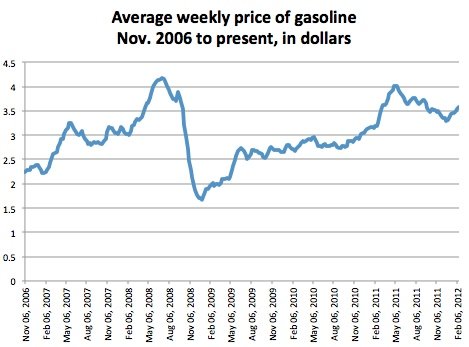If the neighborhoods accessible by RT are not horrible, they will experience price markups as soon as the coming of rail is definite. The only exception I know of, and sooner or later it will be fixed, is stops along Link light rail in the Seattle area south through the Rainier Valley. It is ugly, and by Seattle standards it is dangerous. But it is happening. You should see all the young mothers pushing strollers in Columbia City, which seems to be accepted faster than other Rainier Vally locations. Once a light rail link to Bellevue/Redmond is established, the Rainer Valley will bloom. Unfortunately, that is along way off, too long for me to try to speculate on. Once these migrations are well established, they are hard to stop. In Cincinnati the area north of the courthouse is called Over the Rhine, after the early German settlements there. It has been a rough neighborhood since WW2. Maybe 10 years or so or a little more Grammer's German Restaurant closed, because there was so much street violence that patrons were afraid to come and because they had been robbed a few times. Then in 2001 Over the Rhine experienced days of violent rioting. Did that stop ongoing gentrification? No way; last year OTR was voted Cincinnati's Best Neighborhood! "Over-the-Rhine was voted best Cincinnati neighborhood in CityBeat's Best of Cincinnati 2011."
Gentrification in the 21st century is manifest destiny; it can only be delayed, not stopped, by anything other than a future of cheap fuel which is not going to happen.
Years ago I debated the crude price question with people on this board who thought high prices were speculation only, or oil company manipulation, or due to other ideas that turned out to be wrong. Short term, anything can happen. Long term, it's like glacial melting. If it's getting warmer, glaciers will melt. And if people with money and ability want to live centrally, sooner or later they will. It takes a while for attitudes to adjust and for formerly scary ideas to first become accepted and then become fashionable. That is why first movers into these situations tend to be young unmarried people, gays, artists and others who often do not have wives or children to consider and perhaps to contend with.
Not long after it will be raining those high tech $1000 strollers, and thin young women in runing shoes and spandex pushing them. And dive bars will have been replaced by Pilates Studios.
Ha

